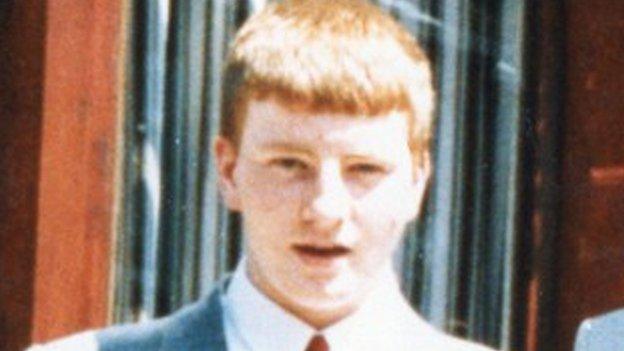Hillsborough inquests: 'Desperate' attempt to save life
- Published
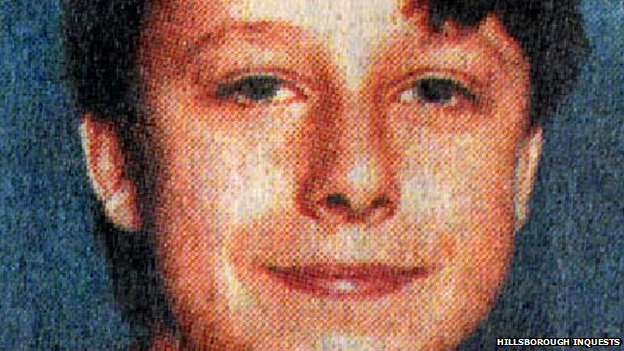
A consultant surgeon spoke of the desperate effort to save Nicholas Hewitt's life
A consultant surgeon said he made a "last, desperate attempt" to resuscitate a 16-year-old boy who died in the Hillsborough disaster.
Christopher Rigby described it as "easy to make a mistake" when trying to assess patients who had been crushed on the Sheffield stadium's terraces.
A fan who was 16 at the time of the tragedy also told the inquests he wished he could have done more.
Ninety-six Liverpool fans died in a fatal crush on 15 April 1989.
The new inquests in Warrington were told Mr Rigby was at the FA Cup semi-final match as a spectator but went onto the pitch after seeing a "large number" of casualties.
'Vigorous chest compressions'
He described giving mouth-to-mouth resuscitation and chest compression to the injured.
In his statement, he said in a situation like Hillsborough "you had no equipment, other than to be able to carry out simple CPR," adding, "it's easy to make a mistake with crush injuries which give the appearance of not breathing and lack of pulse.
"Unless you were there, I don't think you can appreciate what it was really like."
Mr Rigby was also asked about treatment he gave to 16-year-old Nicholas Hewitt.
He was shown in footage kneeling over Nicholas at around 15:31 BST.
He appeared to carry out a short "general assessment" and then gave "vigorous chest compressions" before standing up and shaking his head.
Mr Rigby said: "I obviously made a rapid assessment that there was nothing that could be done for the patient."
The inquests also focused on the death of Gordon Horn, 20.
His sister, Debbie Hough, said he had a witty sense of humour and a "way of getting under people's skin and making them love him."
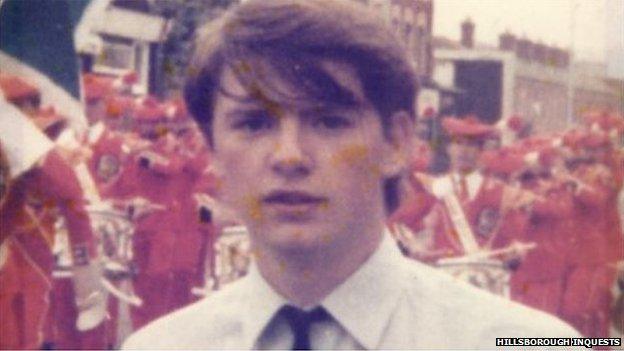
A survivor told the Hillsborough inquests he wishes he could have done more to save Gordon Horn
Gordon travelled with friends in a hired minibus from Bootle, Merseyside.
One friend, Andrew Dodd, believes they went into pen four and he said his feet left the floor and there was constant pressure in the crowd, rather than surging.
Mr Dodd moved towards the front of the pen, but lost sight of Gordon.
The court heard from police officers and fans who helped carry Gordon across the pitch after 15:30 BST.
Gary Williams-Verrall, a survivor who was 16 at the time, helped carry a makeshift stretcher with Gordon on it with his friend Mark Griffiths. He told a family barrister: "I just wish I could have done more." He said that Gordon had shown "no signs of life."
Gordon was eventually taken to the stadium's gymnasium where a doctor confirmed he had died. His friend, Douglas Hardaker, identified his body at 00:10 BST the next morning.
The inquests continue.

Who were the 96 victims?
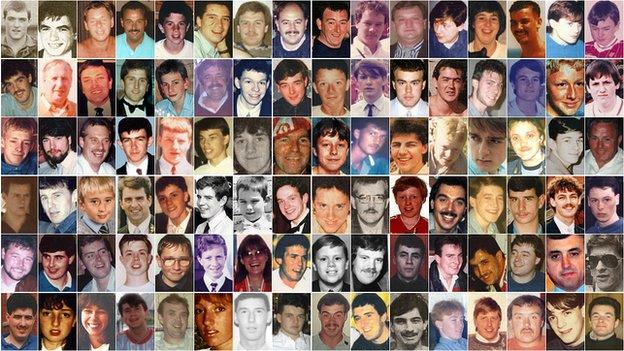
BBC News: Profiles of all those who died
- Published29 June 2015
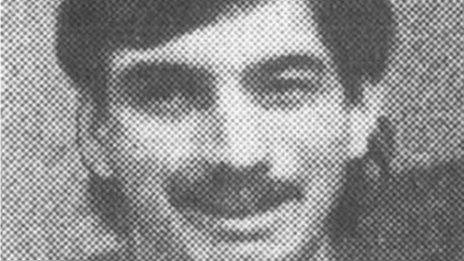
- Published24 June 2015
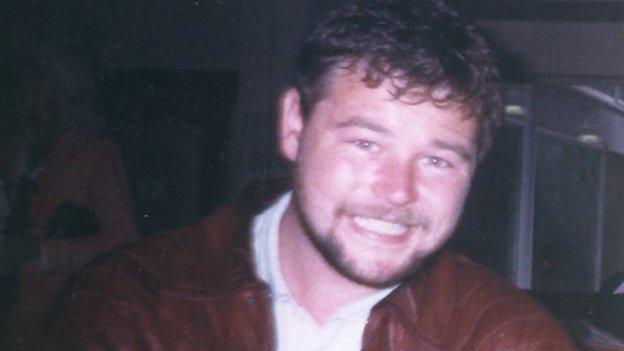
- Published23 June 2015
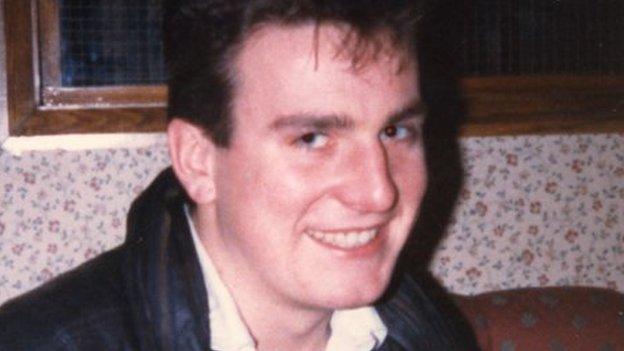
- Published22 June 2015
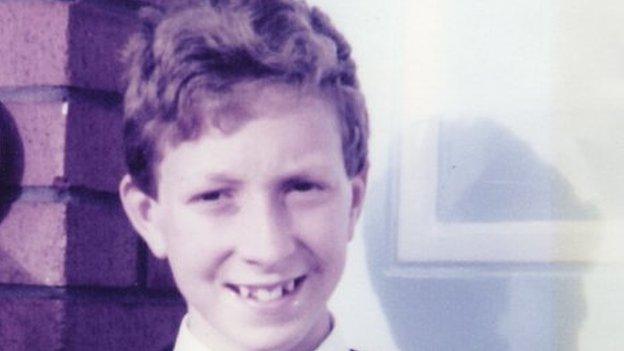
- Published18 June 2015
